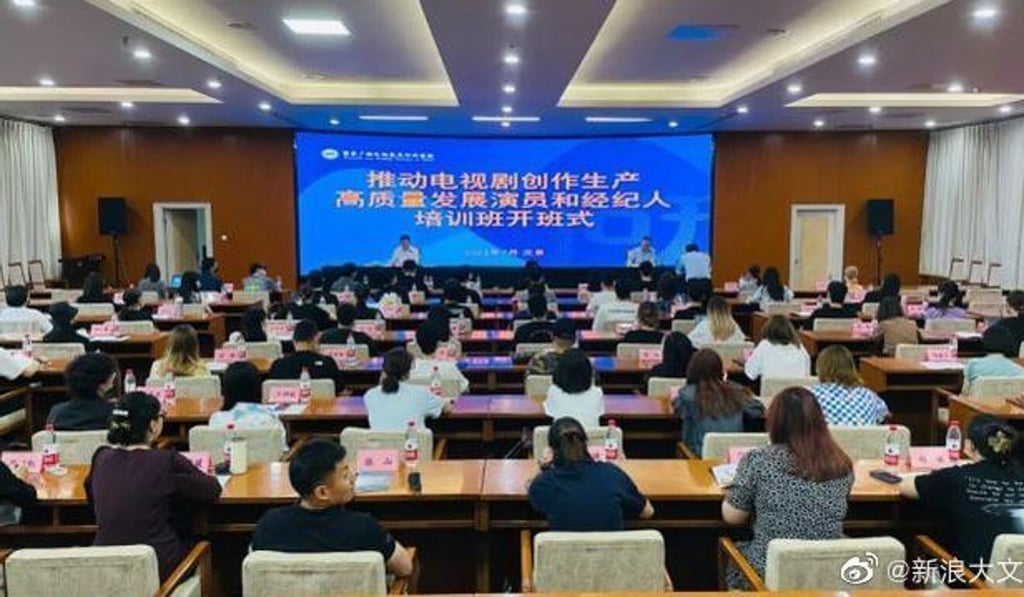Advertisement
Dozens of Chinese celebrities attend morality class amid backdrop of high-profile Kris Wu rape case
- The class reportedly covered ethics and morals, Chinese law as well as the history of the Communist Party
- Kris Wu is accused of date raping multiple women using alcohol
Reading Time:2 minutes
Why you can trust SCMP
2

Alice Yanin Shanghai
Dozens of mainland entertainers, including some of the country’s most famous people, took part in an “ethical training session” hosted by the National Radio and Television Administration (NRTA) amid a rape case involving Kris Wu, one of the most famous men in China.
The two-day class took place in Beijing last month and pictures of the event were circulated online this week.
Sixty-four Chinese entertainers attended the gathering, and the NRTA did not explain why or how these stars were selected or if the course was compulsory.
Advertisement

Big names among the participants were Lei Jiayin, famous for his role in The First Half of My Life, Zhang Yishan from The Deer and the Cauldron and Rayzha Alimjan, who has become a public figure in changing society’s perceptions about depression.
Advertisement
The session was titled: “Training Class for Promoting the Production of High-quality TV Series”. The content included professional ethics, law and regulations and the Communist Party’s history.
Advertisement
Select Voice
Select Speed
1.00x